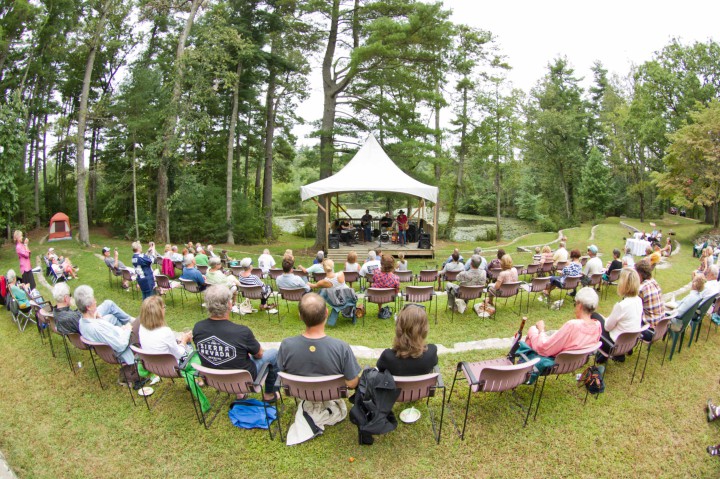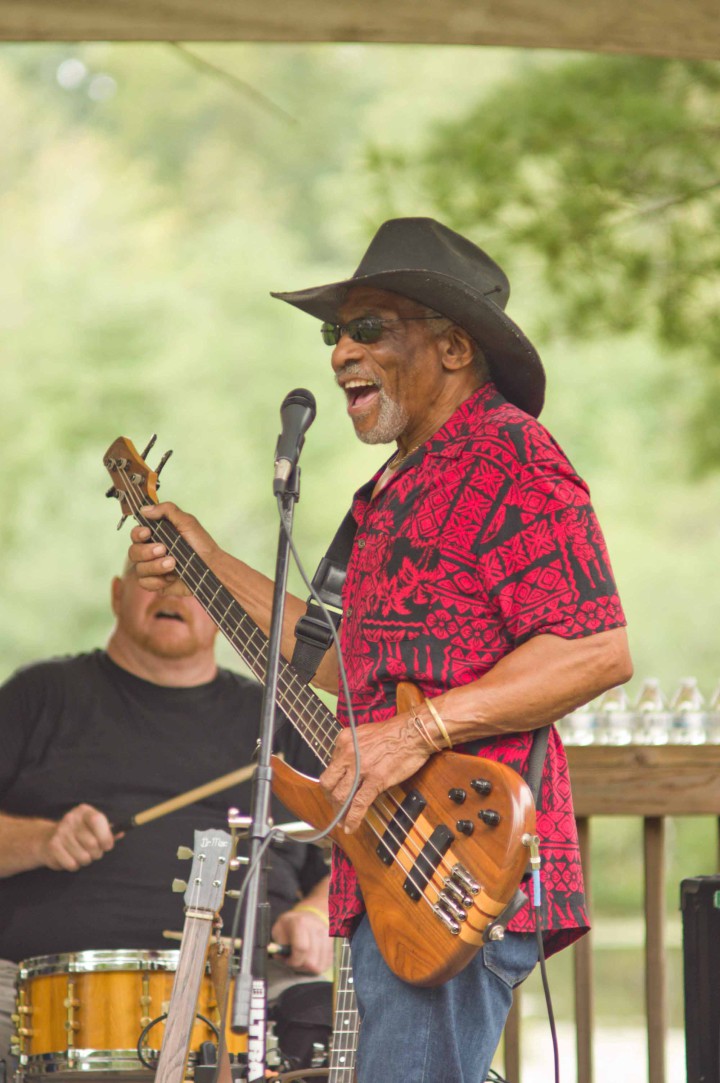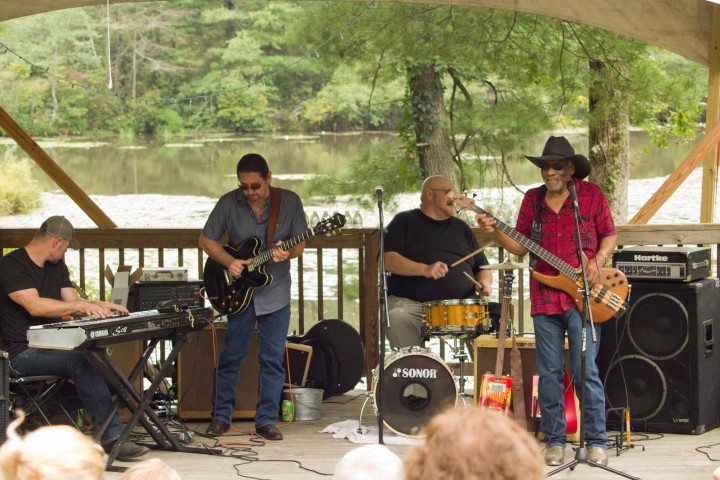Music lovers gathered at Highland Lake Cove in Flat Rock on Sunday afternoon, Sept. 18, for the fifth annual Bids & Blues fundraiser supporting Thrive, a Hendersonville nonprofit that addresses the gap in mental health care in Henderson County.
Lawn tents sheltered offerings of beer and wine, courtesy of Sierra Nevada and Crate Wine Market, as well as catering from Larc’s Table. On a covered porch, event attendees patrolled a row of silent auction baskets filled with items, tickets and gift cards for stores and services from all over the area. Volunteers roamed the field, selling red raffle tickets worth up to $500 in gift cards at local restaurants.
“Bids & Blues is our signature event that focuses not only on fundraising but also on advocating for our mission. It is vital to our success as an organization,” Kristen Martin, executive director of Thrive, said before the event. “Our goal is $35,000, and we have raised $30,600 to date.”

Thrive is a clubhouse-model, psychosocial rehabilitation program that’s internationally recognized. It seeks to focus on individuals’ personal strengths instead of focusing on their particular illnesses.
Thrive’s approach “helps members to improve their socialization skills, coping skills, independent living skills and vocational skills,” says Martin. “This looks different for each individual. Some individuals need help learning to budget and pay bills. Others need help with their substance use recovery. Others need help in keeping employment even when symptomatic,” she explains.
“We treat each person as an individual and focus on their needs, making us a great fit for many adults struggling with their mental health needs.”
During the fundraiser, a gray pillow of clouds sprinkled rain over the lily pads on Highland Lake as Max Hightower and the rest of the Plate Full O’ Blues Band from Greenville, S.C., warmed up the crowd before the afternoon’s music headliner, blues and funk legend, Mac Arnold.
The headliner began the set with “Ghetto Blue,” an original song about Arnold’s life in Southside Chicago during the 1960s and the musical giants he has played with during his career. Arnold rolled through several songs from his latest album, including “Amos Moses” and “Train Smoke.” The set also included numbers by blues greats Arnold once performed with, including Muddy Waters and Bobby “Blue” Bland.

Every year for the last five, Arnold and his band have donated not only their time and talent but a check as well. As Arnold headed into intermission, he presented the band’s donation to Martin. “It’s a blessing to help those that can’t help themselves,” Arnold told the crowd. “We’re glad that we can help a great organization like Thrive.”

Before starting the next set, Martin took a few moments to speak to the crowd about the kind of care that Thrive offers to members of the community who might not be able to find help like this anywhere else.
“Our transitional employment opportunities are a perfect example of how we tailor services for specific individuals,” she said. “We recently had an individual that struggled to stay employed due to panic attacks. He would struggle at work placements because he would have a panic attack and walk outside to gather himself. When he did this, several employers terminated him because they felt that he had walked out of his job. We were able to help him increase his coping skills, learn how to best communicate with his employers and how to find success in employment. He now has a completely independent job in Asheville and has graduated from our program.”
By the end of the evening, after all of the raffle tickets had been drawn and the gift baskets had been bid on, Thrive had reached its goal for the year, with a total of $35,021 raised.
“We work every day to end stigma related to mental health diagnosis and behaviors,” said Martin. “We believe that transparency and compassion are key to ending stigma. We believe that individuals deserve the right to become ‘thrivers’ instead of just survivors. Supporting our work through volunteering, donating supplies or financial contributions will immediately impact our mission and will help end the stigma each of our members’ experiences.”




—-We work every day to end stigma related to mental health diagnosis
How about just not saying it, not doing that harm to anyone.
Give some thought to not being the person doing that harm.
Harold A. Maio, retired mental health editor